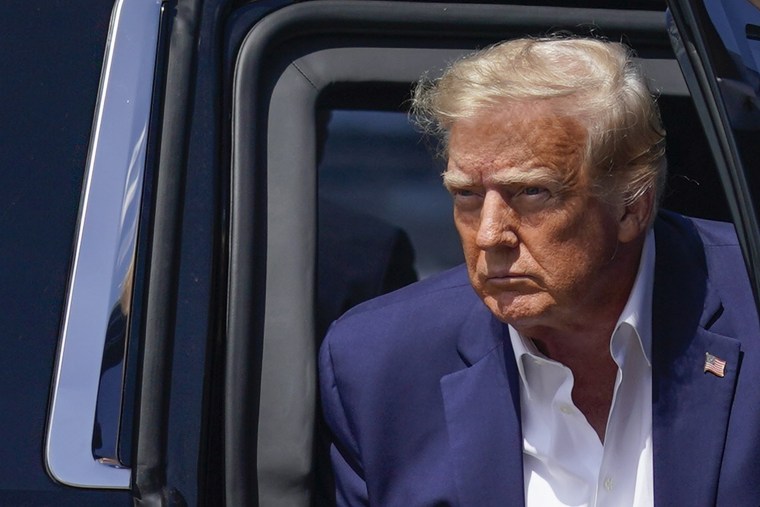Special counsel Jack Smith is opposing former President Donald Trump’s request to delay the trial over his alleged mishandling of classified documents until after the 2024 election.
In a court filing Thursday, the special counsel's legal team rejected the defendants’ argument that a fair trial couldn’t be convened ahead of the presidential election. Prosecutors cited the Speedy Trial Act of 1974, which says judicial officers should set trials "at the earliest practicable time," with allowances for only limited delays in limited circumstances.
"The Defendants chide the Government for seeking an 'expedited' trial but in doing so they have it exactly backward," assistant special counsel David Harbach wrote. "A speedy trial is a foundational requirement of the Constitution and the United States Code, not a Government preference that must be justified."
Lawyers for Trump and co-defendant Walt Nauta had said in a filing this week that starting the trial in December — the timeline sought by the special counsel — would be “unreasonable, telling, and ... result in a miscarriage of justice.”
Harbach disputed that characterization Thursday, writing: “There is no basis in law or fact for proceeding in such an indeterminate and open-ended fashion, and the Defendants provide none."
He instead urged U.S. District Judge Aileen Cannon, a Trump appointee, to set the trial date for December.
Prosecutors from Smith’s office last month requested that Trump’s criminal trial be delayed until Dec. 11. Cannon had initially set a trial date for Aug. 14.
Trump was indicted last month on seven criminal charges alleging that he mishandled more than 100 classified documents that were uncovered last year at his Mar-a-Lago resort in Florida.
He faces 37 counts tied to allegations that he willfully retained national defense information, conspired to obstruct justice and made false statements. Both Trump and Nauta have pleaded not guilty.
A Trump spokesman responded to the special counsel's filing by accusing Smith, the Justice Department and the FBI of election interference.
He said that the case "should never reach trial" and that it should be dismissed based on the Presidential Records Act and other cases, which Trump and his lawyers have portrayed as key to their defense.
The special counsel’s office argued in Thursday’s filing that such a defense “borders on frivolous” and does not merit the delay of court proceedings.
“As for the impact of the Presidential Records Act on this prosecution, any argument that it mandates dismissal of the Indictment or forms a defense to the charges here borders on frivolous,” Harbach wrote, adding that the Presidential Records Acts is “not a criminal statute, and in no way purports to address the retention of national security information.”
“The Defendants are, of course, free to make whatever arguments they like for dismissal of the Indictment, and the Government will respond promptly,” Harbach wrote. “But they should not be permitted to gesture at a baseless legal argument, call it ‘novel,’ and then claim that the Court will require an indefinite continuance in order to resolve it.”
